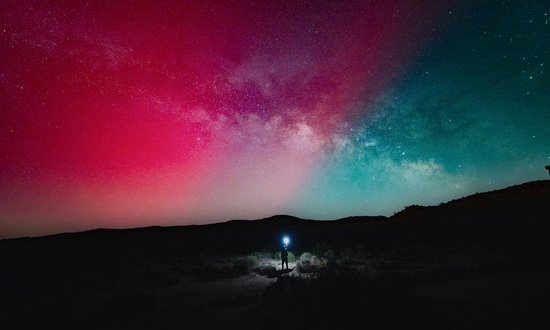In his early twenties, Jonathan Edwards composed a set of life resolutions. One read, “Resolved, to endeavor to obtain for myself as much happiness, in the other world, as I possibly can.”
Some may think it odd and inappropriate that Edwards was so committed to pursuing happiness for himself in Heaven. But Pascal was right when he said, “All men seek happiness. This is without exception. Whatever different means they employ, they all tend to this end.” And if we all seek happiness, why not do as Edwards did and seek it where it can actually be found—in the person of Jesus and the place called Heaven?
Tragically, however, most people do not find their joy in Christ and Heaven. In fact, many people find no joy at all when they think about Heaven.
A pastor once confessed to me, “Whenever I think about Heaven, it makes me depressed. I’d rather just cease to exist when I die.”
“Why?” I asked.
“I can’t stand the thought of that endless tedium. To float around in the clouds with nothing to do but strum a harp . . . it’s all so terribly boring. Heaven doesn’t sound much better than Hell. I’d rather be annihilated than spend eternity in a place like that.”
Where did this Bible-believing, seminary-educated pastor get such a view of Heaven? Certainly not from Scripture, where Paul said to depart and be with Christ was far better than staying on a sin-cursed Earth (Philippians 1:23). My friend was more honest about it than most, yet I’ve found that many Christians share the same misconceptions about Heaven.
After reading my novel Deadline, which portrays Heaven as a real and exciting place, a woman wrote me, “I’ve been a Christian since I was five. I’m married to a youth pastor. When I was seven, a teacher at my Christian school told me that when I got to Heaven, I wouldn’t know anyone or anything from earth. I was terrified of dying. I was never told any different by anyone. . . . It’s been really hard for me to advance in my Christian walk because of this fear of Heaven and eternal life.”
Let those words sink in: “This fear of heaven and eternal life.” Referring to her recently transformed perspective, she said, “You don’t know the weight that’s been lifted off of me. . . . Now I can’t wait to get to Heaven.”
Our Unbiblical View of Heaven
There’s a great deal I don’t know, but one thing I do know is what people think about Heaven. And frankly, I’m alarmed.
I agree with this statement by John Eldredge in The Journey of Desire: “Nearly every Christian I have spoken with has some idea that eternity is an unending church service. . . . We have settled on an image of the never-ending sing-along in the sky, one great hymn after another, forever and ever, amen. And our heart sinks. Forever and ever? That’s it? That’s the good news? And then we sigh and feel guilty that we are not more ‘spiritual.’ We lose heart, and we turn once more to the present to find what life we can.”
Gary Larson captured a common misperception of Heaven in one of his Far Side cartoons. In it a man with angel wings and a halo sits on a cloud, doing nothing, with no one nearby. He has the expression of someone marooned on a desert island with absolutely nothing to do. A caption shows his inner thoughts: “Wish I’d brought a magazine.”
What a contrast to the perspective Charles Spurgeon had on death: “To come to Thee is to come home from exile, to come to land out of the raging storm, to come to rest after long labour, to come to the goal of my desires and the summit of my wishes.”
Trying to develop an appetite for a disembodied existence in a non-physical Heaven is like trying to develop an appetite for gravel. What God made us to desire, and therefore what we do desire if we admit it, is exactly what He promises to those who follow Jesus Christ: a resurrected life in a resurrected body, with the resurrected Christ on a resurrected Earth. Our desires correspond precisely to God’s plans. It’s not that we want something, so we engage in wishful thinking that what we want exists. It’s the opposite—the reason we want it is precisely because God has planned for it to exist. Resurrected people living in a resurrected universe isn’t our idea—it’s God’s.
An Eternal Destination beyond Compare
Louis Berkhof’s classic Systematic Theology devotes thirty-eight pages to creation, forty pages to baptism and communion, and fifteen pages to what theologians call “the intermediate state” (where people abide between death and resurrection). Yet it contains only two pages on Hell and one page on the eternal state.
When all that’s said about the eternal Heaven is limited to page 737 of a 737-page systematic theology like Berkhof’s, it raises a question: Does Scripture really have so little to say? Are there so few theological implications to this subject? The biblical answer, I believe, is an emphatic no!
In The Eclipse of Heaven, theology professor A. J. Conyers writes, “Even to one without religious commitment and theological convictions, it should be an unsettling thought that this world is attempting to chart its way through some of the most perilous waters in history, having now decided to ignore what was for nearly two millennia its fixed point of reference—its North Star. The certainty of judgment, the longing for heaven, the dread of hell: these are not prominent considerations in our modern discourse about the important matters of life. But they once were.”
Conyers argues that until recently the doctrine of Heaven was enormously important to the church. Belief in Heaven was not just a nice auxiliary sentiment. It was a central, life-sustaining conviction.
Sadly, even for countless Christians, that is no longer true.
We’re told how to get to Heaven, and that it’s a better destination than Hell, but we’re taught remarkably little about Heaven itself. Let’s change that! If a trip to Hawaii (or any other location that makes you smile) is worth planning and anticipating and ultimately enjoying, how much more should we plan for, anticipate, and ultimately enjoy Heaven?
J. C. Ryle wrote, “It would be strange indeed if you did not desire information about your new abode. Now surely, if we hope to dwell for ever in that ‘better country, even a heavenly one,’ we ought to seek all the knowledge we can get about it. Before we go to our eternal home we should try to become acquainted with it.”
“I tell you, I will not drink from this fruit of the vine from now on until that day when I drink it new with you in my Father’s kingdom” (Matthew 26:29, NIV). That’s worth looking forward to!
Browse more resources on the topic of Heaven, and see Randy’s related books, including Heaven and The Promise of the New Earth.Photo by Joshua Humpfer on Unsplash





